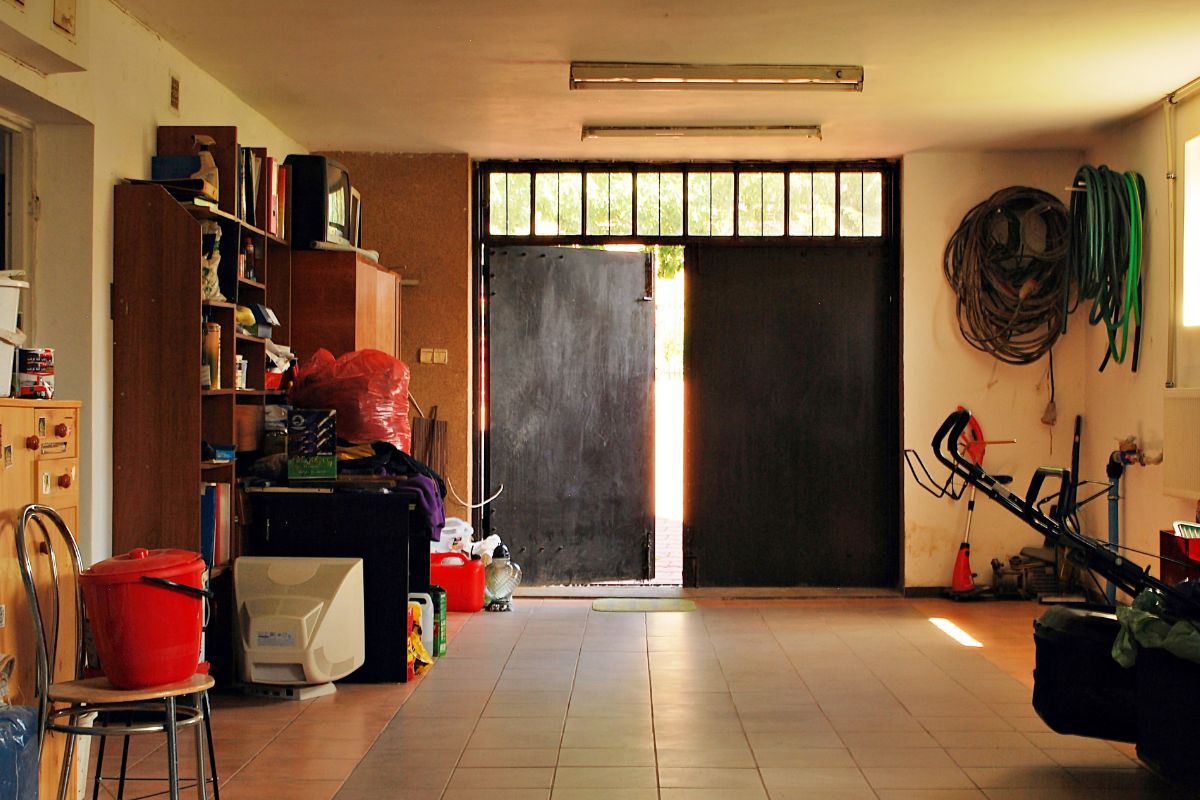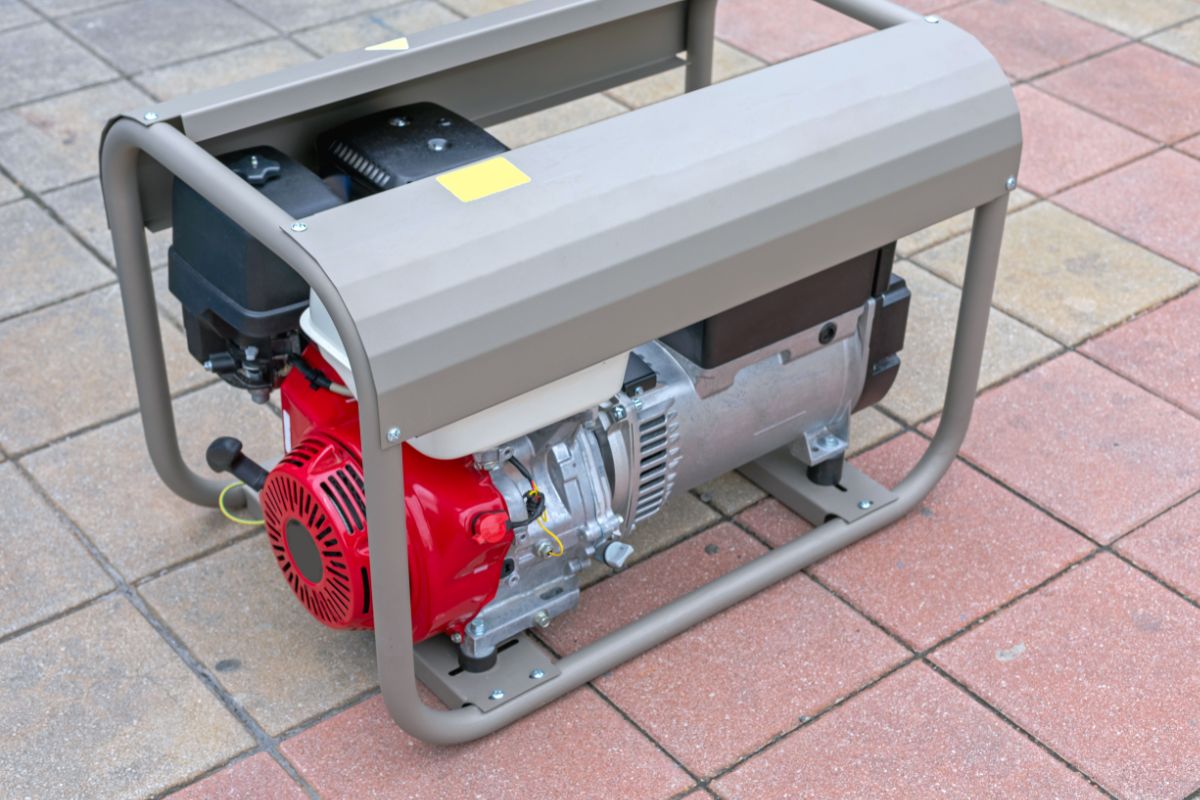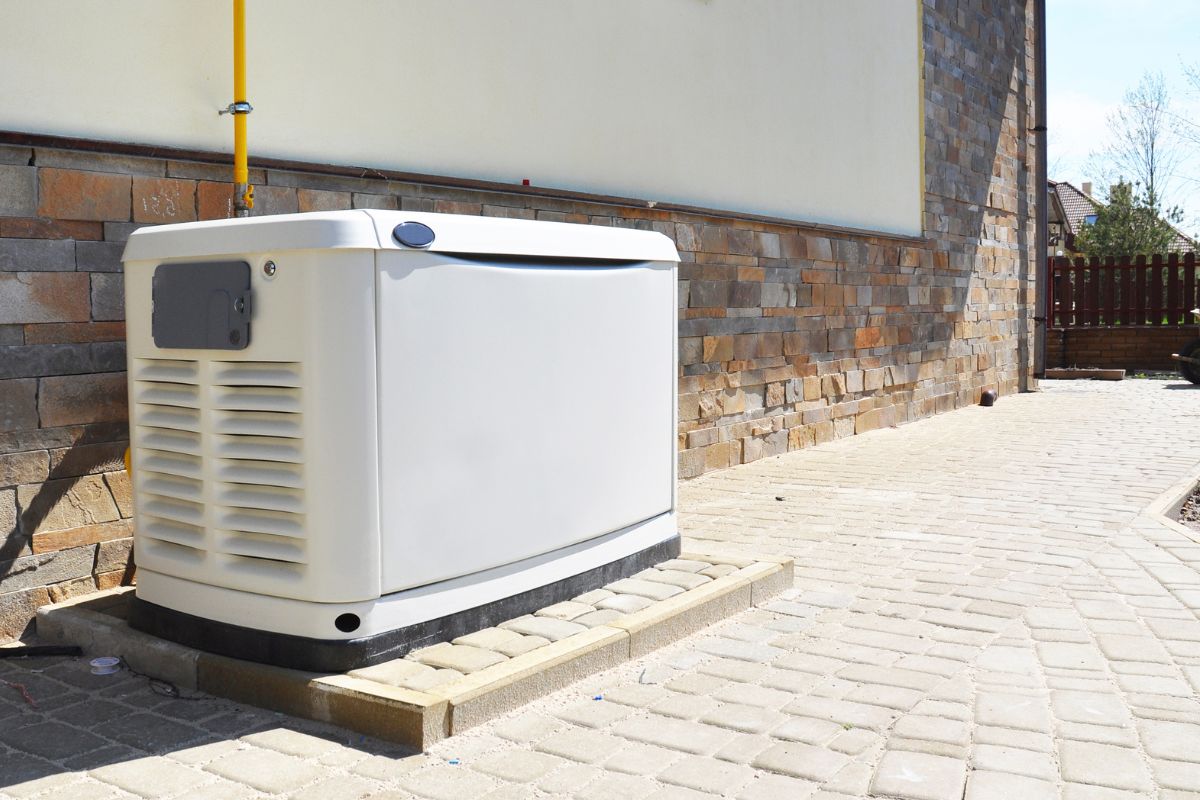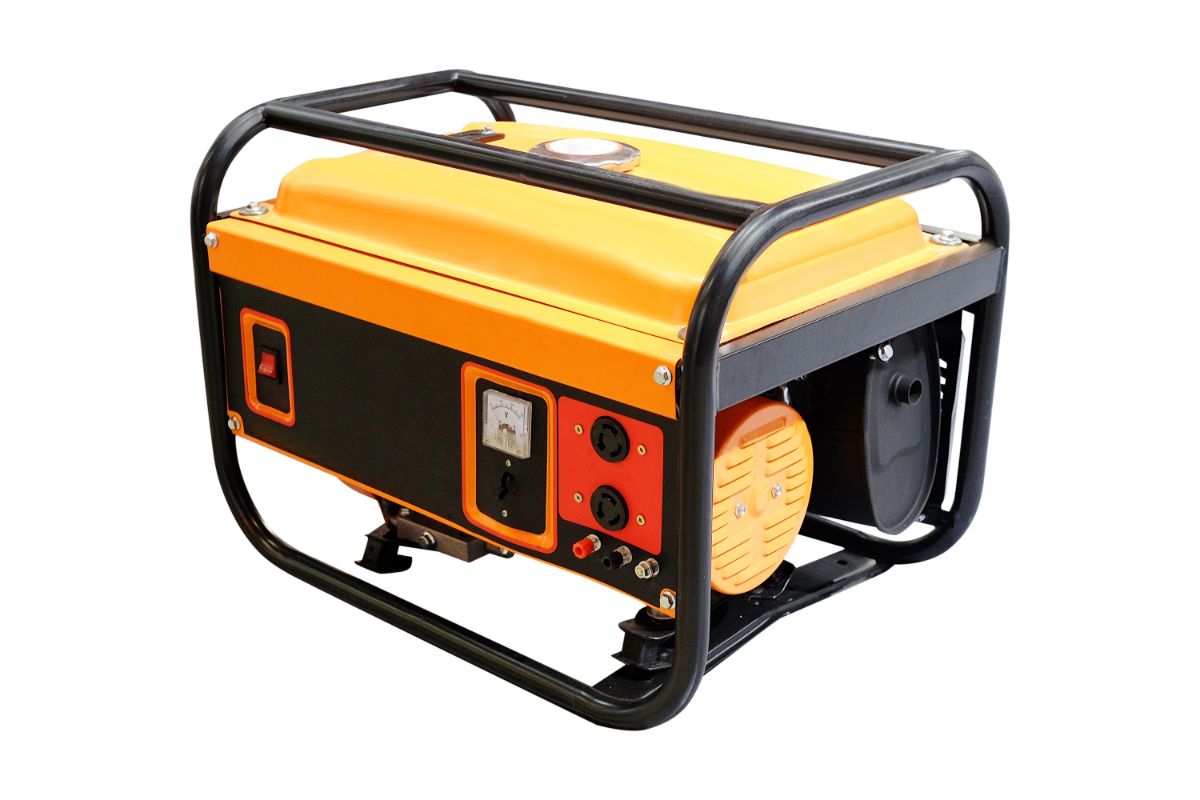When hurricane season comes around, the power can go off suddenly and for extended periods, leaving you incredibly vulnerable, even within your own home.
Food stored in your fridge and freezer expires rapidly, you have no way of controlling ambient temperature, and once the sun goes down, you’re in total darkness.

Should it be a sustained outage, life will be a struggle, to say the least, and for many vulnerable individuals, blackouts can even be fatal. Without power, time seems to stand still, impressing upon you the feeling that things will never go back to normal.
The possibilities are indeed grim. That is, unless you have a generator primed and ready to weather the storm with you, and I’ve compiled a list detailing 5 of the very best.
Best Generators For Hurricanes: Reviews
OUR TOP PICK
EDITORS CHOICE
Champion Power Equipment 200988
BEST VALUE
OUR TOP PICK
DuroMax XP1300EH
Of all the generators on my list, I believe the XP1300EH is the most versatile, so it takes the top spot!
A dual-fuel generator, it doesn’t matter how scarce gas becomes during hurricane season — You can always fall back on propane.
It tops out at 10,000 watts with 13,000 max starting watts, meaning it’s powerful enough to power all the core essentials, including fridges, freezers, phones, and lights.
An HVAC system isn’t viable, but it could handle a smaller, discrete temperature control unit no problem. The socket panel is impeccably furnished.
Featuring 5 in total, comprising 4 AC and 1 12 V DC outlet, there are very few electronics that will have to remain dormant during a blackout, and during my tests, the electric start made activation effortless.
Thanks to a robust, all-metal enclosure, it’s incredibly tough, which should provide peace of mind during extreme weather, and all copper windings ensure optimal performance and duration.
The catch, you ask? Well, it’s pretty loud, but other than that, a stunning machine!
Pros
- 10,500 watts — Power all the essentials
- All copper windings — Performs to spec
- Dual-Fuel — Perfect if one fuel is scarce
Cons
- Running volume — Perhaps too loud for some households
Also available from Buymbs.
EDITORS CHOICE
Champion Power Equipment 200988
Not everyone needs enough backup power to light up a palace. If you’re just trying to keep a couple of lights on and the food from going bad, all you’ll need is this 4500-watt Champion inverter generator.
4500 watts is pretty limited for a hurricane generator, but inverter units are far more efficient than their alternating counterparts, as their microprocessor smooths out the conversion from DC to AC, meaning your fuel goes further.
And speaking of fuel, you can make use of gas and propane, whichever is most abundant, a real help when supplies of one fuel run short due to panic buying.
This one has an electric start too, something I consider unessential but wonderfully handy in a panicky situation — Coolly pushing a button is a lot easier than frantically yanking a cord over and over.
During my tests, I found it to be built like a plastic tank, capable of shrugging off impacts like they were nothing, and the 5-socket output panel caters to all popular connections.
It’s pretty darn quiet too, so it won’t earn you the ire of your neighbors.
Pros
- Running volume — One of the quietest generators I’ve come across
- Build quality — Insanely robust build laughs in the face of hurricanes
- Dual-fuel — Great in an emergency
- Inverter — Next-level efficiency
Cons
- Power — Only suitable for small loads
Also available from Inexbuy.
BEST VALUE
EcoFlow Delta Pro
Battery generators aren’t a popular option for hurricane survival kits, but if you’re looking to keep your blackout protection environmentally friendly, the EcoFlow Delta Pro Home Battery is the generator for the job!
Bringing a whopping 3600 watts of green energy to the table, it will keep the lights on, and as there are no emissions, it can be used indoors, safe from the fury of the weather.
It’s not powerful enough to spark life into all your home comforts, but there are certainly benefits to going battery!
For one, it’s solar compatible, so you can charge it for free if you have a panel array, a welcome feature considering how slim fuel supplies get during emergencies.
And needless to say, it’s the quietest generator on this list. At 41.91 kg, it’s quite heavy, but the wheels make transporting it a cinch, and during my tests, I found the integrated USB-C ports incredibly helpful.
In an emergency, a fully juiced phone can be a lifesaver… literally!
Pros
- Battery generator — Can be used indoors, well away from turbulent weather
- Solar enabled — Clean recharge
- Running volume — Near silent operation keeps home liveable
Cons
- Low power — Will only power the essentials (but it’s expandable)
Also available from Firefold.
RUNNER UP
Jackery Portable Power Station Explorer
If portability is key… as in, easily ascending and descending stairs grade portability, then there’s really no substitute for the Jackery Explorer. While not as powerful as typical hurricane generators, it’ll keep the essentials, and thus you, alive and kicking.
The Explorer’s output maxes out 1000 watts, which seems relatively meager, but during my tests I found that as long as you don’t hook up more than two small appliances simultaneously, it’s a very capable generator. It’ll power lights, desktops, laptops, small refrigerators… you name it!
As a battery generator, it can be used indoors and being that it has a handle and weighs little over 22 lbs, you can carry it around your home with you, powering all the essentials in the immediate environment.
The only real downside is that it’s best for short-lived blackouts, which may not always be the case in hurricane season.
Pros
- 22 lbs — Carry it easily by hand to the spot you need it most.
- Battery powered — Can be used indoors, saving you from venturing out in extreme weather.
- Affordable — Hurricane season can hit the bank account pretty hard, so the reasonable price tag is appreciated.
Cons
- Longevity — It’s a short-term energy solution.
Also available from Aventuron
RUNNER UP
Generac 70432
How does 22,000 watts standing by to save the day in the event of a blackout sound? Pretty good, right? Well, if you have a big enough bank account, you can have just that with the Generac 70432.
As a stationary unit with a sturdy aluminum enclosure, no amount of bad weather will stop this generator from fulfilling its duties, and as it uses natural gas, it can be plumbed directly into a residential system — No fuel necessary!
I have to say, I was a little intimidated by this generator, but I found that the smart controls and LCD make using it a surprisingly intuitive experience.
And if the weather is too wild to head outside, you can monitor battery power, receive real-time status updates, and track maintenance intervals remotely using the partner app.
It’s a costly investment, but stationary backup generators are known to add 3–5% to property value and reduce insurance premiums, so as long as you look after it, you’ll see an ROI.
Pros
- 22,000 watts — Keeps your whole house running
- Running volume — Sound dampening enclosure keeps noise liveable
- Wi-Fi — Monitor performance remotely from the safety and comfort of your home
Cons
- Price — Costs a small fortune
Also available from Supplyhouse.
Best Generators For Hurricanes Buying Guide
Want to know the criteria I focused on to make my shortlist of hurricane heroes? All is revealed in this buyer’s guide!
Generator Power & Your Energy Requirements
As I’m sure you’ve guessed, the most important consideration is the power capacity of a generator. After all, what good is a generator if it can’t shoulder the intended load? Your first port of call should be to make a priority list of electronic amenities.
Unless money is no object and you can afford to buy a monster whole-house generator, my advice is to stick with the absolute essentials — We’re talking a few lights, refrigerator, freezer, and possibly a temperature control system.
Around 7500 watts will cover the lights, fridge, and freezer, but if you’re looking to power a full-blown HVAC too, I’d hold out for a minimum of 15,000 watts.
If you’re unsure about your energy requirements, look for one of the many online energy use calculators. Enter a few key details, and it will tell you precisely how much muscle you’ll need to get by come hurricane season.
Generator Type
Once you’ve settled on a wattage, you should consider which type of generation technology would suit your needs best. If your desired wattage is particularly large or small, your decision may have already been made for you.
Inverter Generators
Generally speaking, inverter generators are the smallest of the bunch. They’re lightweight, highly efficient, and super quiet. Larger units may be capable of pushing out up to 5000 watts, which should be enough for bare essentials, such as lights and keeping phones charged.
If you need more juice, you can usually chain them in sequence and double your output! — You can do a LOT with 10,000 watts. It still won’t cover your HVAC system, but if you have a modest stand-in, it will keep that running for a fair while.
Portable Emergency Generators
These are your more typical generators, providing anywhere between 1000 and 17,000 watts. The higher end of this power spectrum technically would support a small HVAC system, but the inconsistent output could potentially cause some serious damage to sensitive electronics.
Portable emergency generators are almost always fitted with steel roll cages, so they’re a good fit for when the going gets tough.
Whole-House Generators
Stationary whole-house generators are the most powerful, capable of producing anywhere from 6000 to 60,000 watts. They cost an absolute fortune, but they’re the ultimate backup in the event of a hurricane blackout… or any other kind of blackout for that matter.
Fuel Type
It doesn’t necessarily matter whether you shoot for a propane or gasoline generator, but, technically speaking, propane is the better choice for hurricane season. It has a much longer shelf-life, maintaining volatility while in storage; you can prep years in advance.
What’s more, propane runs longer, is much safer to store due to a comparatively high ignition temperature, burns cleaner and quieter, is less likely to spill, and is much easier to have delivered.
The only downsides to propane are the lower power output, cold weather vulnerability, and the fact it’s harder to smell, which can make leaks tricky to detect.
It’s also more expensive than gasoline throughout the year, but when gas resources run low due to panic buying around hurricane season, propane often ends up the more affordable option.
What About Battery Powered Generators?
Battery power is a possibility, but finding a generator of this type large enough to be of use during hurricane season can be tricky, and watt for watt, they’re the most expensive option on the market.
Sockets
Once your output and fuel are accounted for, you need to be able to funnel it to all the necessary sources, meaning your generator needs to have a versatile selection of sockets. I’d recommend a minimum of two AC and one DC, but it’s a more the merrier situation.
Durability
Things can get a little, shall we say… hectic, when the wind goes full tilt, whips up a hurricane and takes down the power lines in your area, so having a generator that can roll with the punches is a distinct benefit.
Granted, the chances of it actually having to withstand an impact are relatively slim if it’s properly housed, but there’s no sense in taking any chances. A sturdy frame or thick plastic shell is essential in my book!
Volume
Despite the blustery weather, hurricane season can be pretty quiet — People are hunkering down, there’s very little activity or traffic outside, and businesses are closed.
As such, it’s best to grab yourself a relatively quiet generator because, sure, you want power, but you also want to be able to hear yourself think.
Frequently Asked Questions
Where Should You Store A Generator During Hurricane Season?
The same rules apply to generator storage in and out of hurricane season. They should only ever be used outside, set up at least 20 feet downwind of any doors, windows, or vents to prevent harmful emissions from reaching you and your family.
A small sound-proof housing isn’t completely out of the question as long as it’s secure, but any walk-in structure such as a shed or garage is strictly out of the question.
I’d recommend having a carbon monoxide detector installed in your home if you don’t already have one, and it’s also a good idea to keep a fire extinguisher handy in case of an emergency.
And whatever you do, never use your generator in rainy weather, as water and electricity don’t play nice. A wet generator could lead to electrocution or perhaps even an explosion.
How Should You Connect A Generator To Electrics During Hurricane Season?
You should never plug any electronics directly into your generator. In fact, if their wiring can reach your generator, it’s a sign your generator is far too close for comfort.
The only way to link electronics to your generator in hurricane season is with super heavy-duty, outdoor extension cables, such as this one from Woods.
How Do You Start A Generator?
- To begin, make sure there are no cords already connected to the sockets, and use a spirit level to check the ground beneath your generator is nice and flat.
- Next, turn the fuel valve on and activate the choke.
- Flick the engine switch on.
- Pull the recoil cord.
- When the engine fires up, move the choke to run the generator.
When Is Hurricane Season?
The Atlantic hurricane season tends to span June all the way through to the start of December, or in other words, almost the entire second half of the year.
As I’m sure you’re aware, most of the time, there’s nothing much to worry about, but as we’ve seen in recent history, storms can get pretty catastrophic.
It’s far better to be safe than sorry, so I urge you, alongside preparing other hurricane safety measures, pick up whichever of the generators on this list most suits your needs, and keep yourself and your family safe if the weather does become extreme.
Should I Buy A Generator For Hurricane Season?
It’s well worth buying a generator for hurricane season if only to keep a single light on and the food in your fridge and freezer fresh.
Even if you don’t end up using it during a hurricane blackout, they’re remarkably handy bits of kit to have on standby year-round for all kinds of events and emergencies.
Final Thoughts
A generator is a must-have before any household can claim to be prepared for catastrophe, even if you live in a hurricane-free state such as Montana, but for those that do weather the windy season each year, it’s an essential!
By now you should have a pretty good idea which of the listed generators is the one for you, but if you’re still not sure, revisit the buyer’s guide and think hard about what you need yours to be capable of. You’ll figure it out in no time!











